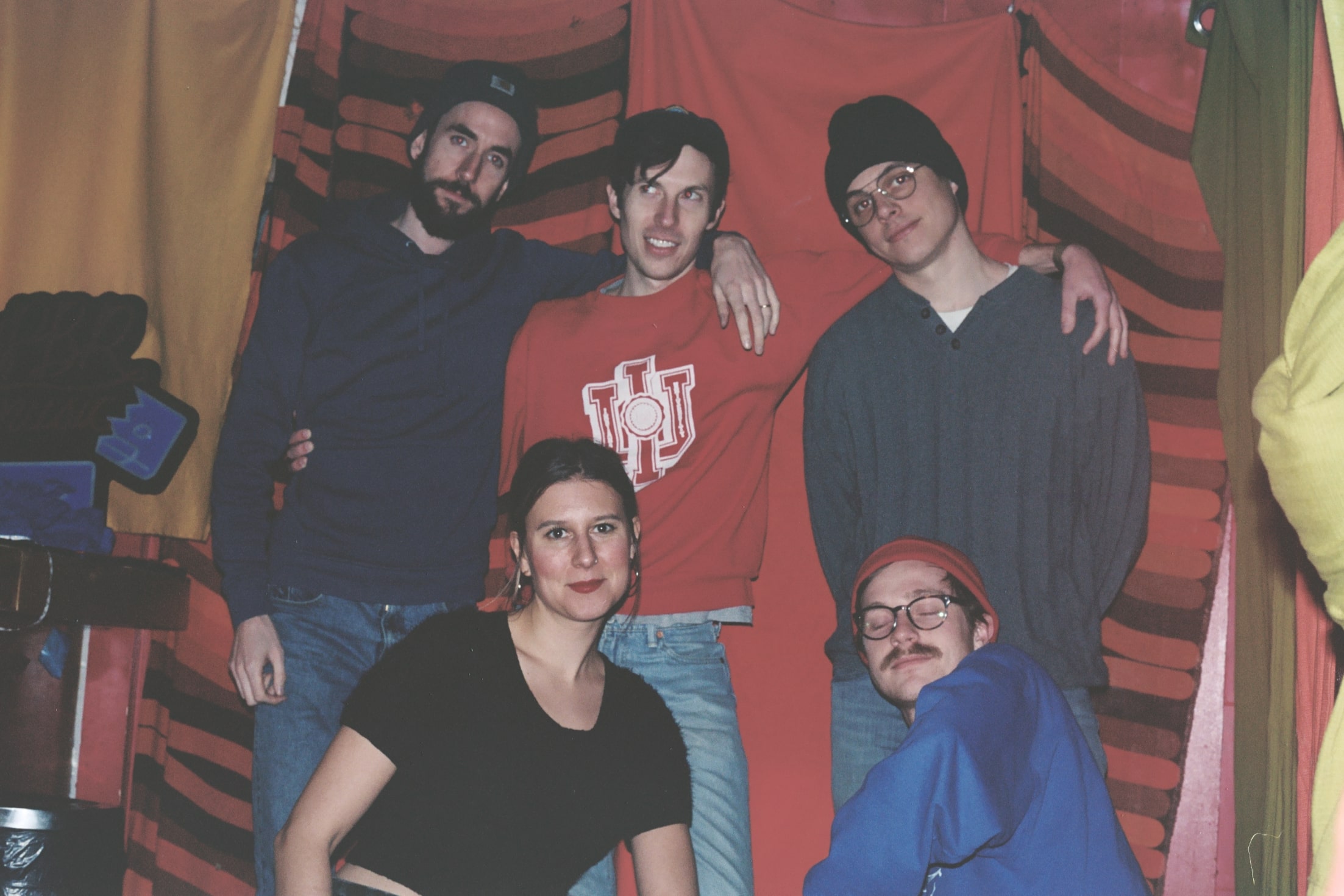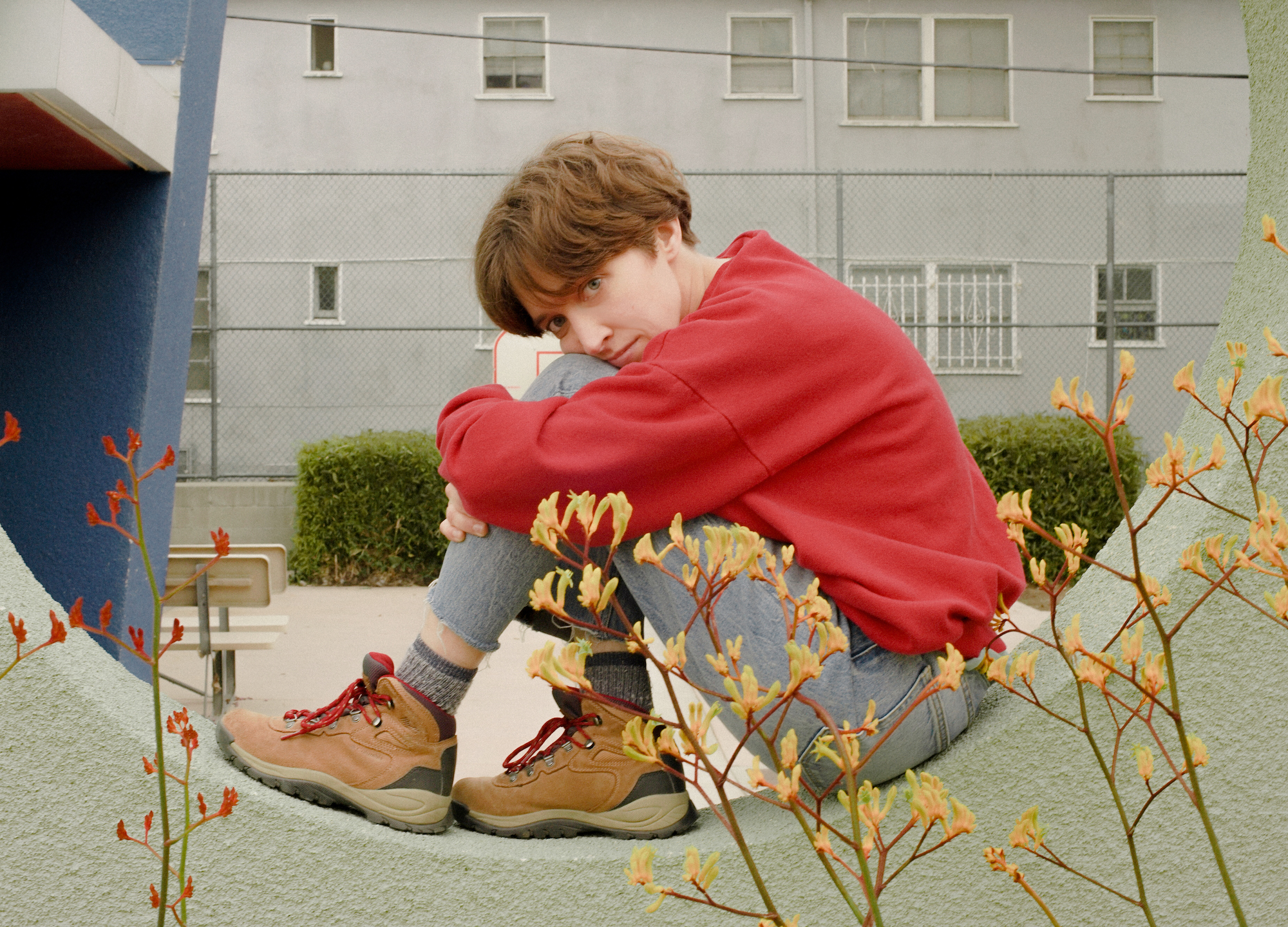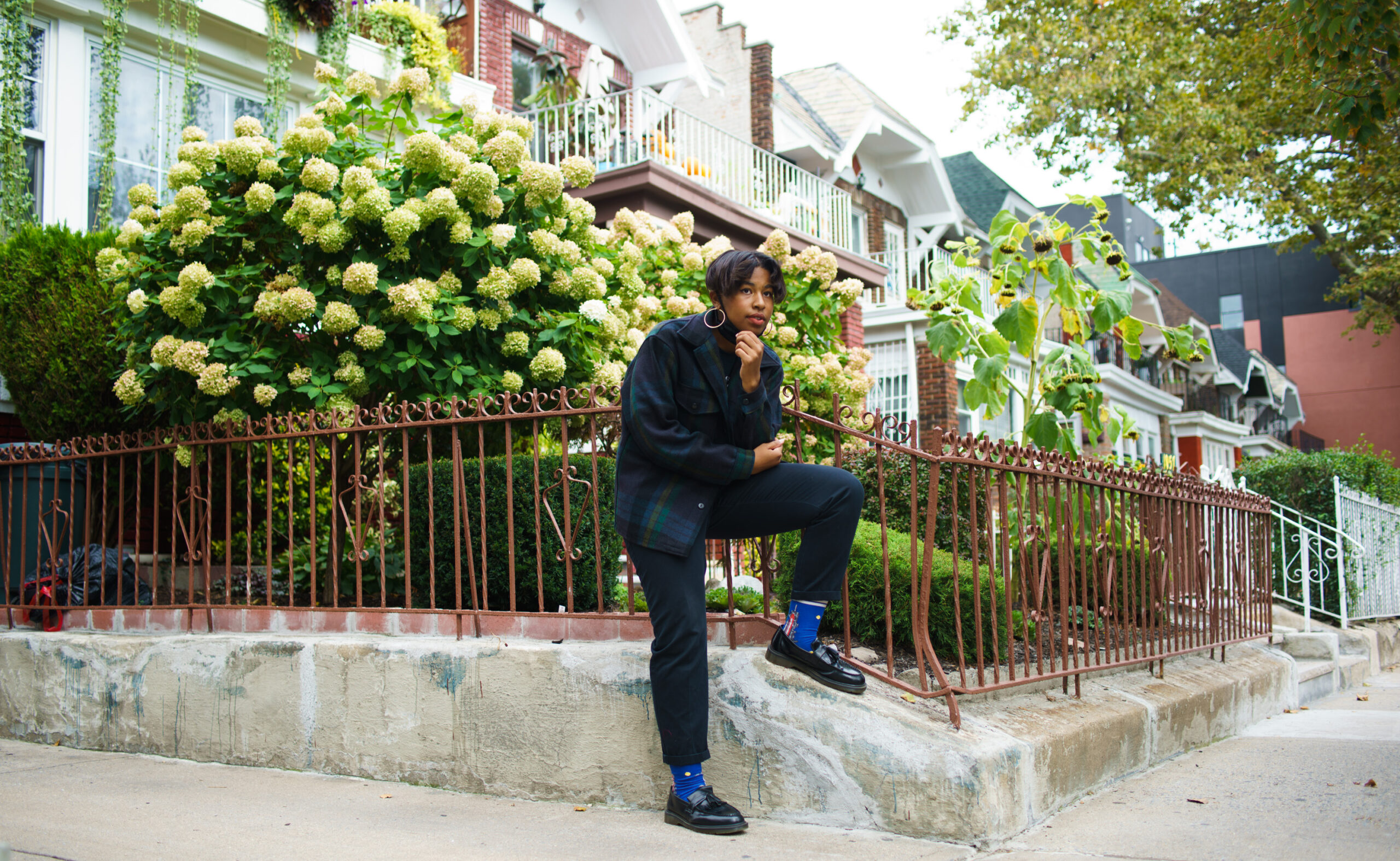In “Holy Water,” a track midway through June Jones’ latest record Leafcutter, she sings:
I try my best to be present
I try my best to be here /
I try my best to be present
I try to not disappear /
I try my best to be present
I try my best to be here /
I try my best to exist /
What more can I do than this?

To say I resonated is an understatement; I felt those lyrics in my bones. This articulation of how I have been feeling for the last 12 months as I just carry on, through a deadly pandemic, an insurrection, and the anxiety that comes along with watching the world fall apart around you. All this and you’re expected to continue on as if everything is fine. When everything is so obviously not fine.
The undercurrent running through Leafcutter is a rejection of capitalism and a culture that glorifies it. A reminder that we have been conditioned to believe the consumption and the accumulation of wealth are the pathway to happiness, and that there are alternatives. And that it does not have to be this way.
“The undercurrent running through Leafcutter is a rejection of capitalism and a culture that glorifies it.”
In the opening track “Jenny (Breathe),” Jones gives us a peek into a possible alternative. She sings:
Spend the day wielding a knife /
Whittle wood until the sun escapes the sky /
And breathe, breathe
There’s no mention of work, or a job, or any kind of traditional career. Just a reminder to breathe and slow down. To spend the day doing one thing. Later, Jones sings: “Jenny, there are as many worlds as minds here to perceive them,” reminding us that our world is ours to create.
“To say I resonated is an understatement; I felt those lyrics in my bones.”
In “Therapy,” Jones compares shopping to therapy; a reality none of us can ignore: “Do scented candles count as medicine?” Like most people, I know I’ve been guilty of relying on online shopping as a coping mechanism during COVID. The idea of bringing something new into my life as a way to break up the monotony of pandemic life has been a crutch I have been leaning on quite a bit. But it never actually helps. In the chorus, Jones describes a store:
I’m going to therapy /
I’m praying in a church /
I’m waiting in a hospital /
I am going to stay here until it doesn’t hurt
Retail therapy is not therapy, but we’ve been taught that our ailments can be fixed with a gadget or a class. The only way for us to feel better to buy something either as a distraction or a cure. This track, like a lighthouse, shines through the fog that capitalism blankets over us.
“Jones brings us away from man-made despair and back down to earth.”
Following “Therapy,” “Echo” opens with “If wine is liquid courage, then coffee is liquid hope.” It might be my favorite line on the record; we wake up each morning and we fill ourselves up with hope for what the day will bring. But lately, I don’t have much hope to fuel each day. They’re so lonely and so the same. As we get to the chorus, Jones somehow speaks to this exactly: “And I echo, I echo, within myself.” She ends the song singing “Somebody save me,” and honestly, I’d love it if somebody could save me too.
It’s not all doom and gloom though. The album ends with “Dried Petals,” full triumphant trumpets and an organ to match. Jones brings us away from man-made despair and back down to earth. She sings:
I dream about the things that live under the dirt /
Rising like springs that try to grow up from out of a mattress
This song feels like the first warm day after a rough winter. That moment when the sun hits your face for what feels like the first time and finally opens your eyes to all the beauty and possibilities in the world, stretched out in front of you. It’s one last reminder that this album is a stunner.
Throughout Leafcutter, June Jones lays bare trauma out bare. We’re the hurt that our society inflicts on us, but at the same time, Jones offers us a reminder that there are ways out. She invites us to prepare for new worlds we can imagine together.
Meredith Salisbury is a freelance writer and indie bookseller based right outside of Philadelphia. They write about pop culture, music, and social media. Previously they were a social media researcher and the music director of WMUH. You can find them online @meresalisbury.


